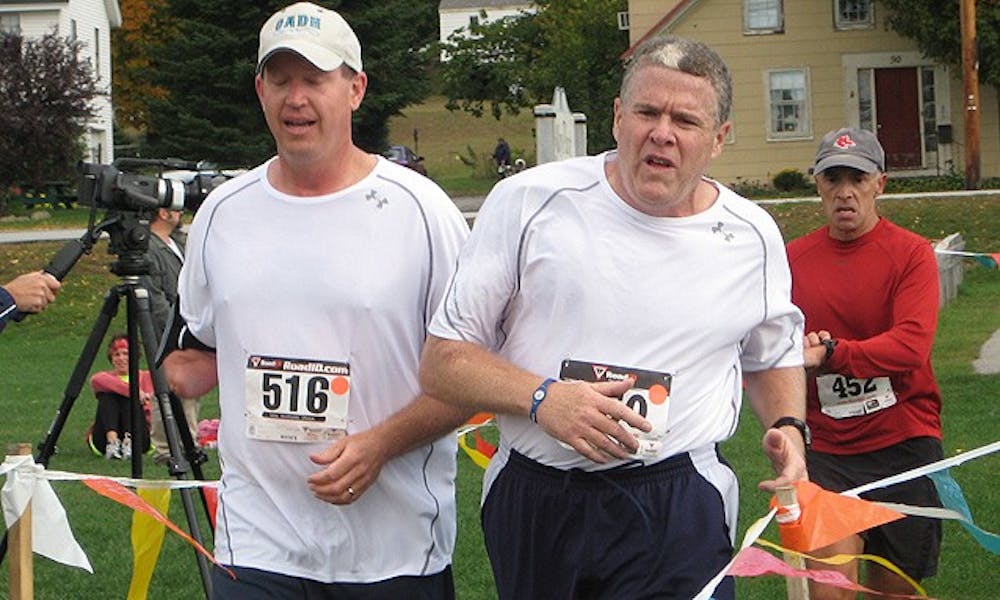Jonathan Kuniholm joined the half-marathon team after Sports Illustrated columnist Peter King lost a bet.
King said he would run a marathon if the NFL’s Terrell Owens signed with the Cincinnati Bengals. When Owens did sign with the team in July, King put a team together for a 13.1 mile race and picked two charities to support by running, one of which was the Wounded Warrior Project, which aims to aid injured service members.
That’s when King invited Kuniholm, a fifth-year biomedical engineering graduate student at Duke and a retired captain in the U.S. Marine Corps, to join his team. Having lost his own arm on patrol in Iraq on New Year’s Day 2005, Kuniholm is an advocate for the advancement of prosthetic technology and wants to make it available to more people.
“[Kuniholm] was a tremendous part of this race and is one of those guys who is a great example, to me, of what perseverance is about,” King said. “He doesn’t give up [and] continues to go about his life.... He didn’t spend five minutes feeling sorry for himself.”
The team was among 107 other half-marathon participants in the 18th annual New Hampshire Marathon and raised between $23,000 and $30,000 for two charities.
“The race went very, very well,” King said. “It was a very charming day, a great event with a lot of people coming out to run for some good causes.”
Jonathan Kuniholm—who is also the son of Bruce Kuniholm, dean of the Sanford School of Public Policy—said he admires King’s philanthropic efforts as a sports columnist, adding that King uses his celebrity to promote causes he is passionate about.
The run is not Kuniholm’s only effort to raise awareness about the issues facing amputees. Several surgeries and prosthetic arms after being ambushed by a roadside improvised explosive device in Iraq, Kuniholm founded the Open Prosthetics Project, which aims to improve prosthetic technology and increase the technology’s availability. Making progress, though, has proven difficult.
“I think we’ve been a lot more successful at getting attention to [the project] than actually raising money for it,” Kuniholm said. “But I think we can still call it a success.”
He noted that because the market for prosthetic limbs is so small, there is not a lot of money readily available for further research.
“Unfortunately, the reality of prosthetics has changed very little,” Kuniholm said. “There are a number of new devices that have been announced but haven’t actually yet hit the market.”
Kuniholm also said the improvement of prosthetics has more to do with policy than with basic science.
“The real problem, in addition to the fact that the media leads us to believe that this problem has been solved, is what can we afford as a society to pay for this... and what’s the best thing that we can provide for that amount of money,” Kuniholm wrote in an e-mail Friday. “That’s a real-life engineering problem.”
However, Kuniholm said he thinks his organization has been successful in raising awareness of prosthetic issues and in providing information on the Internet.
In addition to his nonprofit enterprise, Kuniholm has been working on several low-technology projects, which include a band for prosthetic arms that lasts much longer than the ones provided by medical offices and a harness that is sewn into an Under Armour shirt to increase comfort.
Get The Chronicle straight to your inbox
Signup for our weekly newsletter. Cancel at any time.

